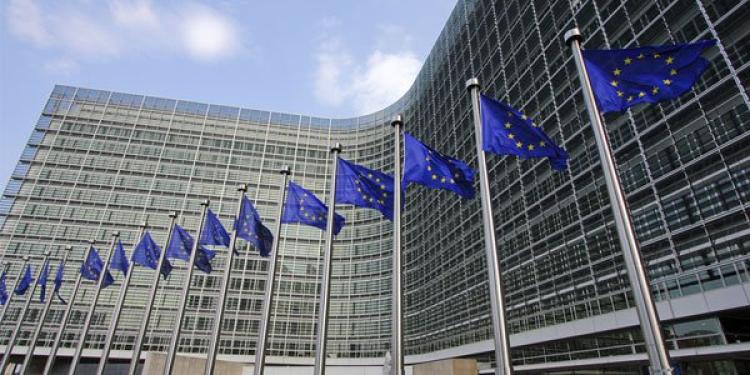European Commission Roulette: High Stakes Political Gambling
Posted: February 27, 2014
Updated: October 4, 2017

Europe is finally getting rid of José Barroso, but who is going to take his place as head of the EU executive body?
Europe’s biggest elections are less than three months away and the union’s most powerful political organizations are putting their teams together for the battle. The stakes are high, but players are determined to go all in, for a chance to gain control over the European Union for the next five years.
The Socialists, the Liberals, the Greens, and the Left have all joined the competition and nominated candidates for the presidency of the European Commission (EC). The centre-right will name a candidate of its own sometime next month. The winners will take up office in July and run one of Europe’s most important institutions until 2019.
This is not a simple game of chance; this is a game that depends a lot on political power and influence. Surely, this will be an exciting year for fans of political mobile betting.
When he became head of the institution, there was no real rival candidate for him, but political parties are now preparing for competition. The Party of European Socialists has Martin Schulz as a top candidate and the Alliance of Liberals and Democrats for Europe has nominated Guy Verhofstadt.
The Greens set up a mini-election - an online poll - even for the process of designating a political competitor. Oddly enough, the poll resulted in the nomination of not one, but two preferred candidates: German politician Ska Keller and José Bové from France. Last, but not least, the European Left is betting on Alexis Tsipras.
The European People’s Party, the prominent political force in the EU and also Barrosso’s party, has… no idea who to go with yet. They will probably pick someone at their Dublin Congress on 7-8 March, but for now the Christian Democratic Union and Christian Social Union announced they are endorsing Luxembourg’s former Prime Minister Jean-Claude Juncker.
The institution operates as a cabinet government with 28 members, one from each state. Their duties include guarding over the EU’s interests and not those of their home countries. Everyone has their own department and responsibilities, but naturally most of the power lies in the hands of one man: the Commission President.
However, the European Parliament still has to give its blessing after the president is appointed, by casting a vote of approval.
At the end of last year, the European authority launched infringement processes on several member states, because their laws were not in compliance with the union’s policies.
Romania was among the countries which received several warnings from the EC about its online casino and poker legislation. The state’s authorities announced they were planning new changes to the current Romanian gambling laws, in order to block out all foreign-based operators.
Sweden has also received a stern warning from European Gaming and Betting Association, an authority which works together with the EC to make sure that state legislators grant free movement of services to online gambling operators.
So where will the ball fall in this political roulette? It is hard to tell, but the future direction of the European Union depends a lot on the outcome of the elections in May. So get to know the players, check the odds and cast your vote carefully, making sure it goes to someone who deserves it.
Europe’s biggest elections are less than three months away and the union’s most powerful political organizations are putting their teams together for the battle. The stakes are high, but players are determined to go all in, for a chance to gain control over the European Union for the next five years.
The Socialists, the Liberals, the Greens, and the Left have all joined the competition and nominated candidates for the presidency of the European Commission (EC). The centre-right will name a candidate of its own sometime next month. The winners will take up office in July and run one of Europe’s most important institutions until 2019.
This is not a simple game of chance; this is a game that depends a lot on political power and influence. Surely, this will be an exciting year for fans of political mobile betting.
Introducing the players
The EC is currently run by José Manuel Barroso, a controversial figure who no one really seems to like. State authorities have criticized him for his bad decisions. His name has been linked to a few suspicious deals. One politician even called him a “chameleon”, claiming that he changes his attitude according to the surroundings.When he became head of the institution, there was no real rival candidate for him, but political parties are now preparing for competition. The Party of European Socialists has Martin Schulz as a top candidate and the Alliance of Liberals and Democrats for Europe has nominated Guy Verhofstadt.
The Greens set up a mini-election - an online poll - even for the process of designating a political competitor. Oddly enough, the poll resulted in the nomination of not one, but two preferred candidates: German politician Ska Keller and José Bové from France. Last, but not least, the European Left is betting on Alexis Tsipras.
The European People’s Party, the prominent political force in the EU and also Barrosso’s party, has… no idea who to go with yet. They will probably pick someone at their Dublin Congress on 7-8 March, but for now the Christian Democratic Union and Christian Social Union announced they are endorsing Luxembourg’s former Prime Minister Jean-Claude Juncker.
Playing for power
So what are the stakes in this political gambling game? Power! As the executive body of the European Union, the EC could be the most powerful institution in the union, watching over its 28 member states.Confirmed candidates for the European elections in May:Its responsibilities include proposing laws, implementing them, making sure member states abide by the Union’s treaties and just generally running the whole EU “operation”. One important role which gives the EC a lot of power is managing the budget.
• Socialists - Martin Schulz
• Liberals and Democrats - Guy Verhofstadt
• Greens - Ska Keller and José Bové
• European Left - Alexis Tsipras
The institution operates as a cabinet government with 28 members, one from each state. Their duties include guarding over the EU’s interests and not those of their home countries. Everyone has their own department and responsibilities, but naturally most of the power lies in the hands of one man: the Commission President.
However, the European Parliament still has to give its blessing after the president is appointed, by casting a vote of approval.
The EC and gambling
But let’s get back to what interests us most: gambling. The European Commission has very much to do with the world of gambling, because this powerful body controls laws - including the ones related to games of chance - and makes sure that they are well implemented in every country.At the end of last year, the European authority launched infringement processes on several member states, because their laws were not in compliance with the union’s policies.
Romania was among the countries which received several warnings from the EC about its online casino and poker legislation. The state’s authorities announced they were planning new changes to the current Romanian gambling laws, in order to block out all foreign-based operators.
Sweden has also received a stern warning from European Gaming and Betting Association, an authority which works together with the EC to make sure that state legislators grant free movement of services to online gambling operators.
So where will the ball fall in this political roulette? It is hard to tell, but the future direction of the European Union depends a lot on the outcome of the elections in May. So get to know the players, check the odds and cast your vote carefully, making sure it goes to someone who deserves it.
Related content
Subscribe
0 Comments












